
Hãy nhập câu hỏi của bạn vào đây, nếu là tài khoản VIP, bạn sẽ được ưu tiên trả lời.



a) Ta có: \(A=\dfrac{x}{x-4}+\dfrac{1}{\sqrt{x}-2}+\dfrac{1}{\sqrt{x}+2}\)
\(=\dfrac{x+\sqrt{x}+2+\sqrt{x}-2}{\left(\sqrt{x}+2\right)\left(\sqrt{x}-2\right)}\)
\(=\dfrac{x+2\sqrt{x}}{\left(\sqrt{x}+2\right)\left(\sqrt{x}-2\right)}\)
\(=\dfrac{\sqrt{x}}{\sqrt{x}-2}\)
b) Thay x=36 vào A, ta được:
\(A=\dfrac{6}{6-2}=\dfrac{6}{4}=\dfrac{3}{2}\)
c) Để \(A=\dfrac{-1}{3}\) thì \(\dfrac{\sqrt{x}}{\sqrt{x}-2}=\dfrac{-1}{3}\)
\(\Leftrightarrow3\sqrt{x}=-1\left(\sqrt{x}-2\right)\)
\(\Leftrightarrow3\sqrt{x}+\sqrt{x}=2\)
\(\Leftrightarrow\sqrt{x}=\dfrac{1}{2}\)
hay \(x=\dfrac{1}{4}\)

a, Ta có : \(AC^2=AB^2+BC^2=40^2+42^2=3364\Rightarrow AC=58\)cm * đúng *
Vậy tam giác ABC vuông tại B
b, \(\sin A=\dfrac{BC}{AC}=\dfrac{42}{58}=\dfrac{21}{29}\)
\(\cos A=\dfrac{AB}{AC}=\dfrac{40}{58}=\dfrac{20}{29}\)
\(\tan A=\dfrac{BC}{AB}=\dfrac{42}{40}=\dfrac{21}{20}\)
\(\cot aA=\dfrac{AB}{BC}=\dfrac{40}{42}=\dfrac{20}{21}\)

a) Ta có: \(S=\left(1+\dfrac{\sqrt{x}}{x+1}\right):\left(\dfrac{1}{\sqrt{x}-1}-\dfrac{2\sqrt{x}}{x\sqrt{x}+\sqrt{x}-x-1}\right)\)
\(=\dfrac{x+\sqrt{x}+1}{x+1}:\dfrac{1-x-1}{\left(\sqrt{x}-1\right)\left(x+1\right)}\)
\(=\dfrac{x+\sqrt{x}+1}{-x}\cdot\dfrac{\left(\sqrt{x}-1\right)}{ }\)
\(=\dfrac{1-x\sqrt{x}}{x}\)
b) Thay \(x=4-2\sqrt{3}\) vào S, ta được:
\(S=\dfrac{1-\left(4-2\sqrt{3}\right)\left(\sqrt{3}-1\right)}{4-2\sqrt{3}}\)
\(=\dfrac{1-\left(4\sqrt{3}-4-6+2\sqrt{3}\right)}{4-2\sqrt{3}}\)
\(=\dfrac{1-2\sqrt{3}+10}{4-2\sqrt{3}}=\dfrac{9-2\sqrt{3}}{4-2\sqrt{3}}\)
\(=\dfrac{\left(9-2\sqrt{3}\right)\left(4+2\sqrt{3}\right)}{4}\)
\(=\dfrac{36+18\sqrt{3}-8\sqrt{3}-12}{4}\)
\(=\dfrac{24+10\sqrt{3}}{4}=\dfrac{12+5\sqrt{3}}{2}\)
a)\(S=\left(\dfrac{x+1+\sqrt{x}}{x+1}\right):\left(\dfrac{x+1-2\sqrt{x}}{\left(\sqrt{x}-1\right)\left(x+1\right)}\right)\) \(đk:x\ne\pm1\)
\(S=\dfrac{x+1+\sqrt{x}}{x+1}.\dfrac{\left(\sqrt{x}-1\right)\left(x+1\right)}{\left(\sqrt{x}-1\right)^2}\)
\(S=\dfrac{x+1+\sqrt{x}}{\sqrt{x}-1}\)
b)\(x=4-2\sqrt{3}=\left(\sqrt{3}-1\right)^2\left(TMĐK\right)\)
\(\sqrt{x}=\sqrt{3}-1\)
Từ đó ta có :
\(S=\dfrac{4-2\sqrt{3}+1+\sqrt{3}-1}{\sqrt{3}-1-1}\)
\(S=-5-2\sqrt{3}\)

Bài 1:
\(a,A=6\sqrt{2}-6\sqrt{2}+2\sqrt{5}=2\sqrt{5}\\ b,B=\dfrac{\sqrt{3}\left(\sqrt{3}-1\right)}{\sqrt{3}-1}+\dfrac{\sqrt{2}\left(\sqrt{2}-1\right)}{\sqrt{2}-1}=\sqrt{3}+\sqrt{2}\\ c,=2\sqrt{3}-6\sqrt{3}+15\sqrt{3}-4\sqrt{3}=7\sqrt{3}\\ d,=1+6\sqrt{3}-\sqrt{3}-1=5\sqrt{3}\\ e,=4\sqrt{2}+\sqrt{2}-6\sqrt{2}+3\sqrt{2}=2\sqrt{2}\)
Bài 2:
\(a,ĐK:x\ge\dfrac{3}{2}\\ PT\Leftrightarrow\sqrt{2x-3}=5\Leftrightarrow2x-3=25\Leftrightarrow x=14\\ b,PT\Leftrightarrow x^2=\sqrt{\dfrac{98}{2}}=\sqrt{49}=7\Leftrightarrow\left[{}\begin{matrix}x=\sqrt{7}\\x=-\sqrt{7}\end{matrix}\right.\\ c,ĐK:x\ge3\\ PT\Leftrightarrow\sqrt{x-3}\left(\sqrt{x+3}+1\right)=0\\ \Leftrightarrow\sqrt{x-3}=0\left(\sqrt{x+3}+1>0\right)\\ \Leftrightarrow x=3\\ d,ĐK:x\ge1\\ PT\Leftrightarrow2\sqrt{x-1}-\sqrt{x-1}+3\sqrt{x-1}=4\\ \Leftrightarrow\sqrt{x-1}=1\Leftrightarrow x=2\left(tm\right)\\ e,PT\Leftrightarrow2x-1=16\Leftrightarrow x=\dfrac{17}{2}\\ f,PT\Leftrightarrow\left|2x-1\right|=\sqrt{3}-1\Leftrightarrow\left[{}\begin{matrix}2x-1=\sqrt{3}-1\\2x-1=1-\sqrt{3}\end{matrix}\right.\Leftrightarrow\left[{}\begin{matrix}x=\dfrac{\sqrt{3}}{2}\\x=\dfrac{2-\sqrt{3}}{2}\end{matrix}\right.\)
Bài 3:
\(a,Q=\dfrac{1+5}{3-1}=3\\ b,P=\dfrac{x+\sqrt{x}-6+x-2\sqrt{x}-3-x+4\sqrt{x}+9}{\left(\sqrt{x}-3\right)\left(\sqrt{x}+3\right)}\\ P=\dfrac{\sqrt{x}\left(\sqrt{x}+3\right)}{\left(\sqrt{x}-3\right)\left(\sqrt{x}+3\right)}=\dfrac{\sqrt{x}}{\sqrt{x}-3}\\ c,M=\dfrac{\sqrt{x}}{\sqrt{x}-3}\cdot\dfrac{3-\sqrt{x}}{\sqrt{x}+5}=\dfrac{-\sqrt{x}}{\sqrt{x}+5}\)
Vì \(-\sqrt{x}\le0;\sqrt{x}+5>0\) nên \(M< 0\)
Do đó \(\left|M\right|>\dfrac{1}{2}\Leftrightarrow M< -\dfrac{1}{2}\Leftrightarrow-\dfrac{\sqrt{x}}{\sqrt{x}+5}+\dfrac{1}{2}< 0\)
\(\Leftrightarrow\dfrac{2\sqrt{x}-\sqrt{x}-5}{2\left(\sqrt{x}+5\right)}< 0\Leftrightarrow\sqrt{x}-5< 0\left(\sqrt{x}+5>0\right)\\ \Leftrightarrow0\le x< 25\)
Bài 4:
\(a,A=\dfrac{16+2\cdot4+5}{4-3}=29\\ b,B=\dfrac{2\sqrt{x}-9-x+9+2x-3\sqrt{x}-2}{\left(\sqrt{x}-2\right)\left(\sqrt{x}-3\right)}\\ B=\dfrac{x-\sqrt{x}-2}{\left(\sqrt{x}-2\right)\left(\sqrt{x}-3\right)}=\dfrac{\left(\sqrt{x}-2\right)\left(\sqrt{x}+1\right)}{\left(\sqrt{x}-2\right)\left(\sqrt{x}-3\right)}=\dfrac{\sqrt{x}+1}{\sqrt{x}-3}\\ c,P=\dfrac{x+2\sqrt{x}+5}{\sqrt{x}-3}\cdot\dfrac{\sqrt{x}-3}{\sqrt{x}+1}=\dfrac{x+2\sqrt{x}+5}{\sqrt{x}+1}\\ P=\dfrac{\left(\sqrt{x}+1\right)^2+4}{\sqrt{x}+1}=\sqrt{x}+1+\dfrac{4}{\sqrt{x}+1}\\ P\ge2\sqrt{\left(\sqrt{x}+1\right)\cdot\dfrac{4}{\sqrt{x}+1}}=2\sqrt{4}=4\\ P_{min}=4\Leftrightarrow\left(\sqrt{x}+1\right)^2=4\Leftrightarrow\sqrt{x}+1=2\Leftrightarrow x=1\left(tm\right)\)

a: Xét (O) có
ΔAMB nội tiếp đường tròn
AB là đường kính
Do đó: ΔAMB vuông tại M
Xét tứ giác AMCK có
\(\widehat{AKC}+\widehat{AMC}=180^0\)
nên AMCK là tứ giác nội tiếp
hay A,M,C,K cùng thuộc một đường tròn
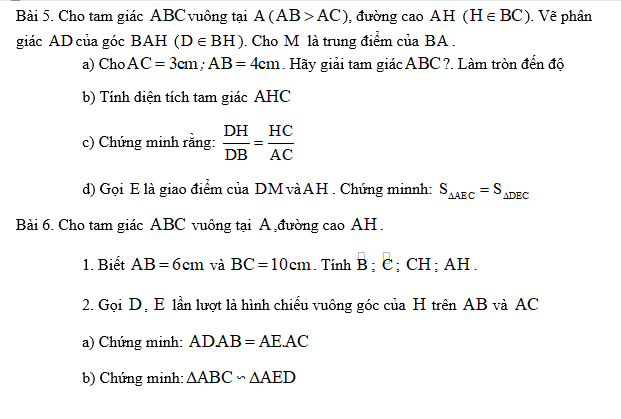
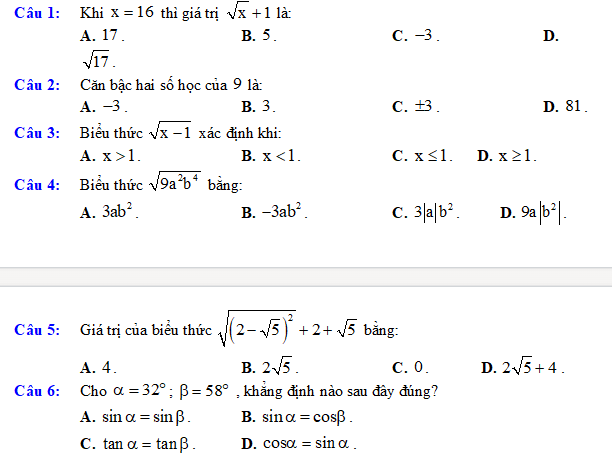
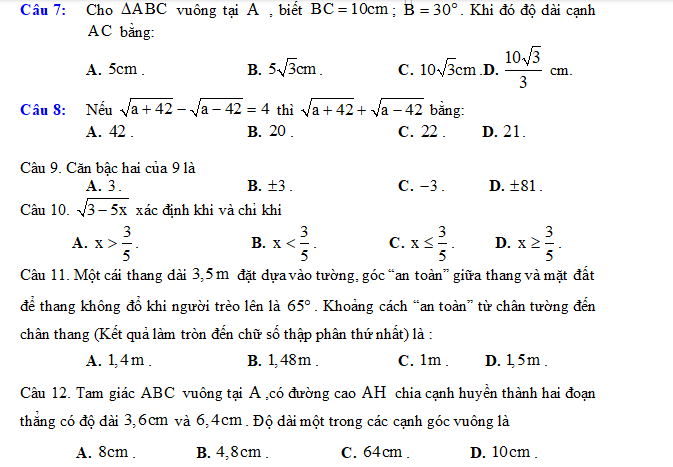

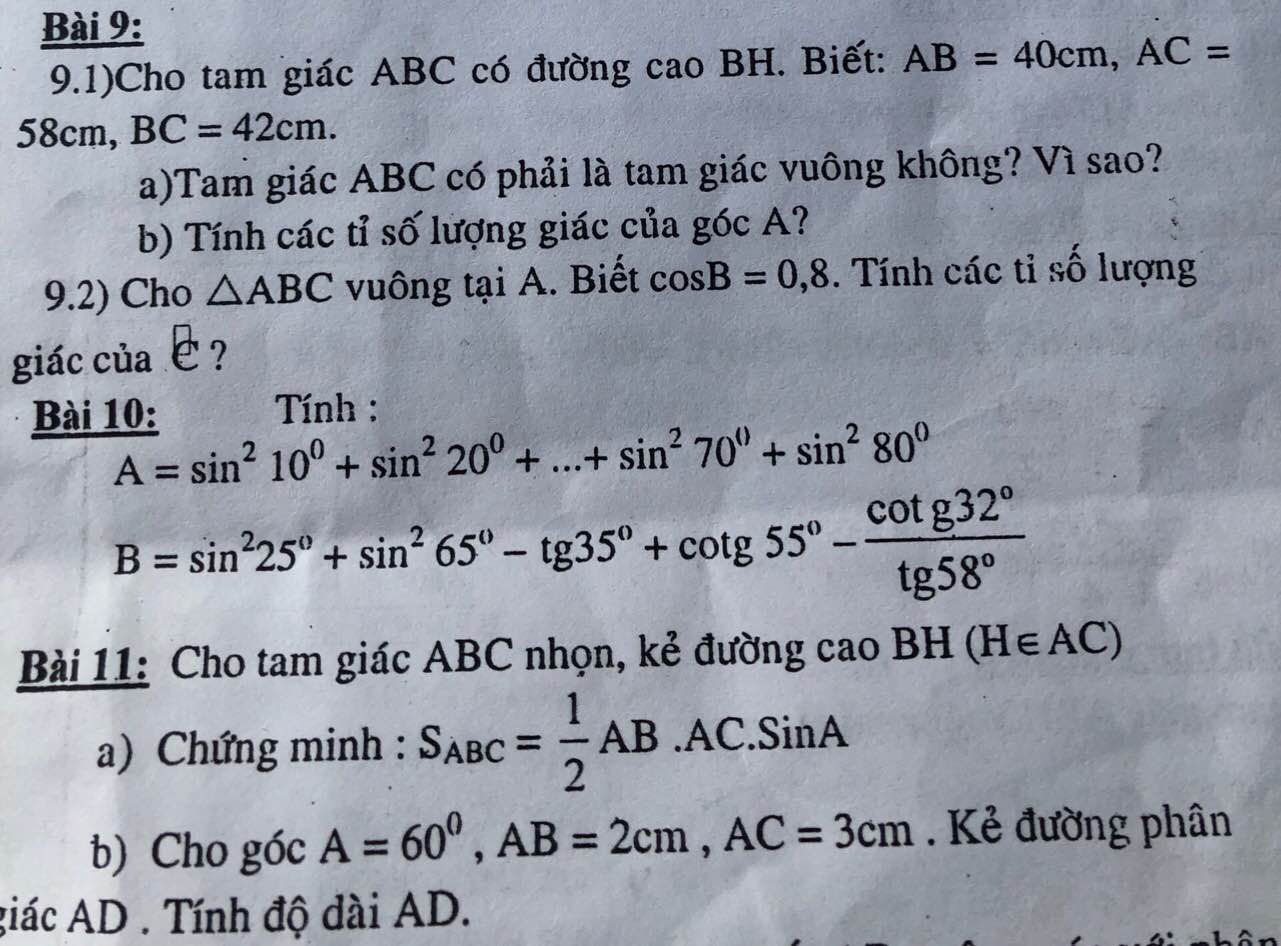 giúp mik vs ạ. Cảm ơn mn
giúp mik vs ạ. Cảm ơn mn
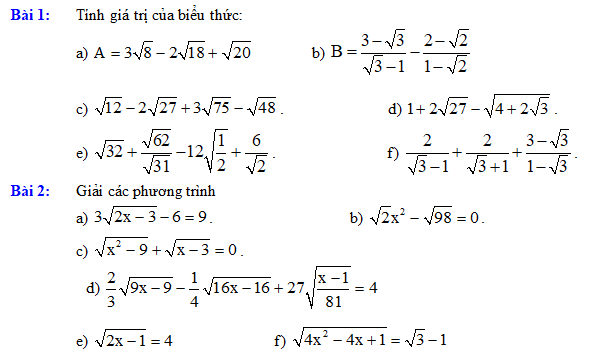
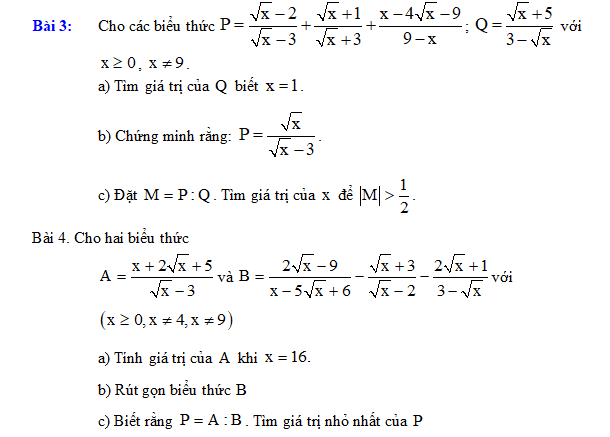
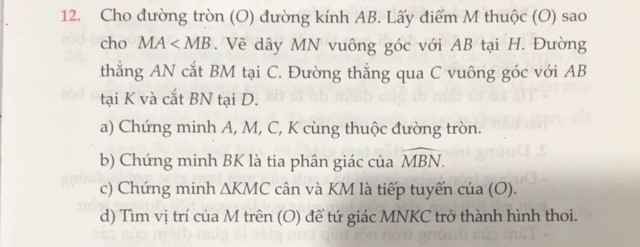
a: BC=5cm
\(\widehat{B}=37^0\)
\(\widehat{C}=53^0\)
bạn giải chi tiết ra luôn đc ko ạ